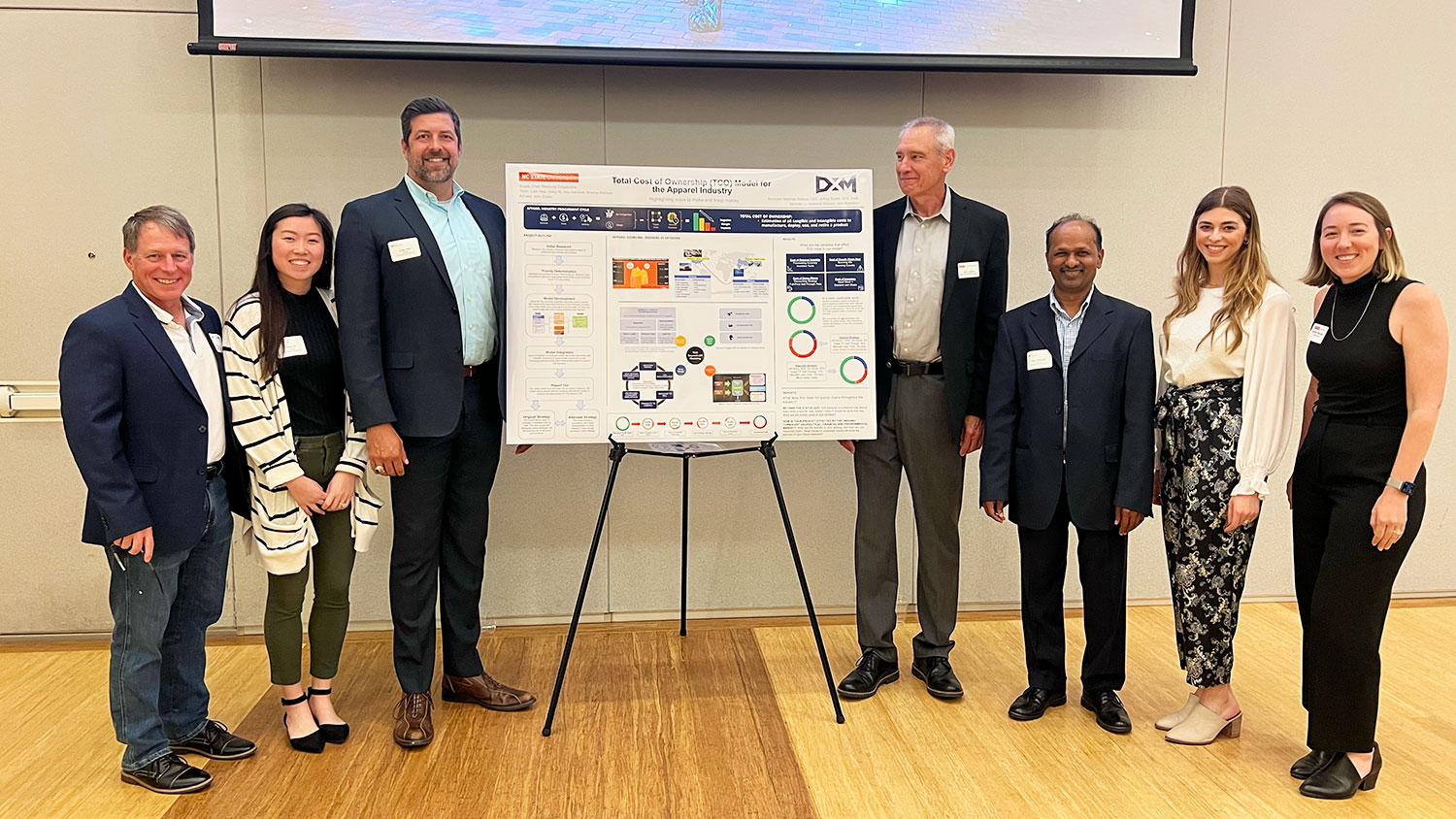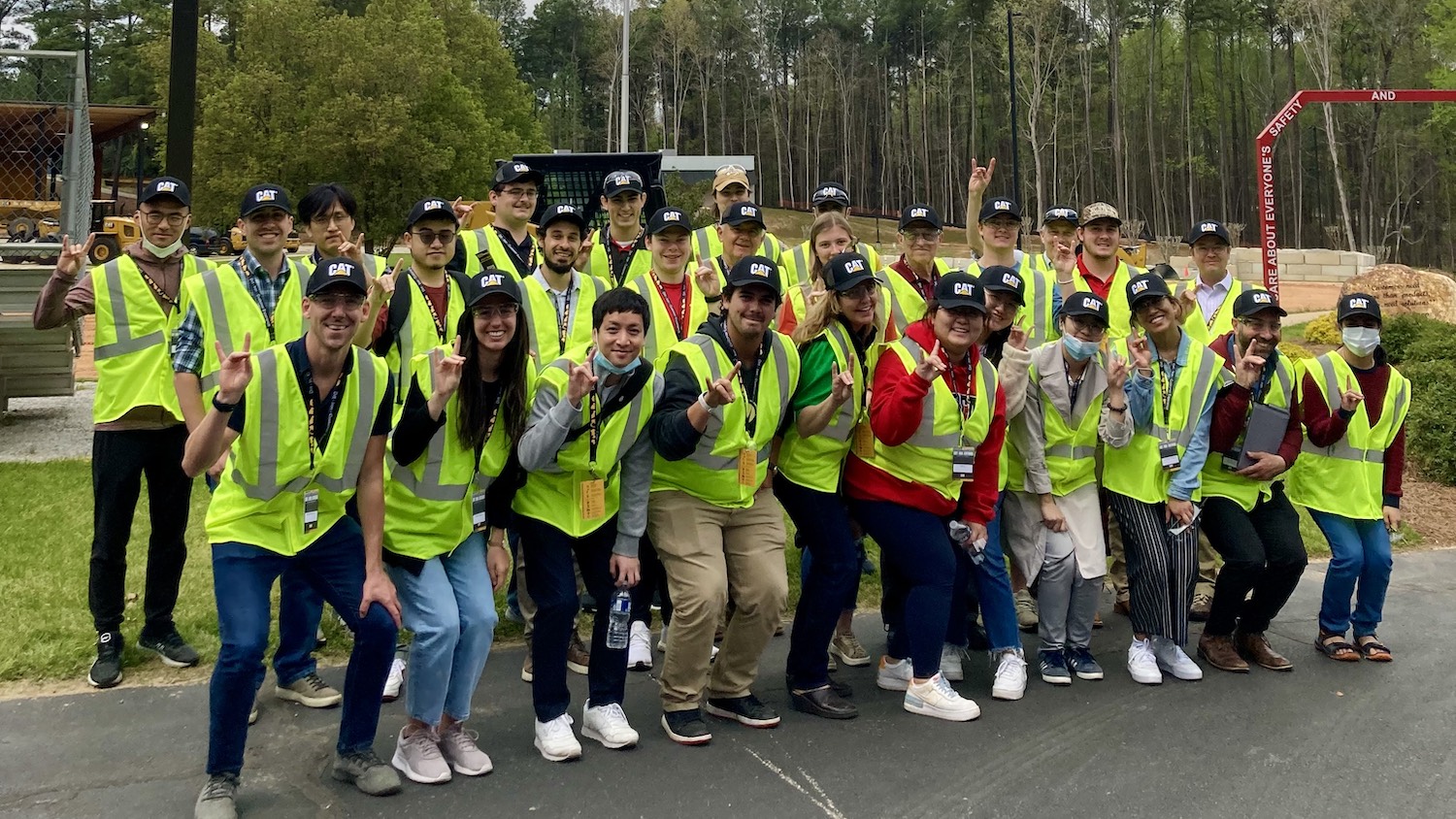SCRC Part of Statewide Local Food Supply Chain Project
The Supply Chain Resource Cooperative (SCRC) in North Carolina State University’s Poole College of Management is one of several partners in a five- year, $3.9 million grant-funded project to build and evaluate supply chains for local farmers and fishers to supply large-scale markets in North Carolina.
The project is led by the Center for Environmental Farming Systems (CEFS) in NC State’s College of Agriculture and Life Sciences (CALS), which has been awarded the first year’s funding of the grant by the Agriculture and Food Research Initiative (AFRI), part of the U.S. Department of Agriculture’s National Institute of Food and Agriculture, Lowes Foods and Fort Bragg, the U.S. Army installation at Fayetteville, N.C., as well as US Foods and Foster-Caviness which supply food to Fort Bragg, are major project partners and represent the type of large-scale retail and institutional markets the supply chains will serve.
Research and coursework
The project includes research into supply chain issues related to such large-scale local food sourcing and distribution, plus outreach and at least one new academic course designed to help prepare NC State students for positions as buyers for sustainable agricultural products or other supply chain roles, said Dr. Robert Handfield, Bank of America Distinguished University Professor and SCRC co-director.
“Local producers are often unable to access market channels that allow them to distribute their products profitably to the public, and this project seeks to provide insights into how to address this challenge,” Handfield said. “In doing so, we are engaging students, a cross-disciplinary team of faculty, growers, producers, the military, distributors, and retailers to better understand how we can collaboratively solve this challenge. I am excited about this project and the contribution that NC State University is making to the local food community and to the state,” he said.
“The local food supply chain management course that we are developing with this grant will include real world projects completed in collaboration with the partner companies and organizations,” Handfield said.
The new 400/500 level course will be available for advanced undergraduate students and graduate students in spring 2014. “We hope to have agroecology, supply chain management and engineering students enrolled,” he said.
Real-world experience for students, graduate fellows
As part of the course, the students will work in teams on projects related to the AFRI project’s objectives.
“This is a tremendous opportunity for our agroecology students, who are learning to apply ecological theory to agricultural practices – as well as students in other disciplines – to engage on a deeper level with producers across the state,” said Dr. Michelle Schroeder-Moreno, faculty advisor for the academic minor in CALS’s Department of Crop Science.
The SCRC also will manage the work of two supply chain fellows who will be funded by the grant to work on related projects. The fellowships are for MBA students enrolled in the college’s Jenkins MBA program supply chain management concentration. Recruitment is currently under way for the fellowships to be awarded for the fall 2013 and spring 2014 semesters.
Improving access to seasonal food, statewide
“We are excited to explore ways that local food supply chains can scale-up to significantly increase consumer access to seasonal and nutritious foods in the state,” said Dr. Nancy Creamer, CEFS co-director and lead faculty member on this grant.
“Local food systems have the capacity to grow jobs; strengthen the economy; preserve farms, farmland, fishing communities and working waterfronts; and improve health outcomes, as consumer demand for fresh foods continues to increase,” she said.
The project seeks to create a statewide and national model of local food supply chains that serve large markets and incorporate values of the local foods movement, including sustainability, fair pricing for producers and others in the value chain, and inclusion of medium and small-sized farms.
CEFS will work with existing wholesale distributors and with farmers, fishers, processors and emerging food hubs to address the growing demand for local foods from institutional and retail buyers.
This project engages a number of partners throughout North Carolina, including Got to Be NC Agriculture the statewide marketing program of the N.C. Department of Agriculture and Consumer Services that works to increase markets by building consumer recognition of local foods; North Carolina Cooperative Extension North Carolina Sea Grant, and other University of North Carolina system universities.
The project includes the following four key objectives, Creamer said.
- Establish baseline data. CEFS, in partnership with the Sustainable Local Foods Advisory Council and the N.C. Department of Agriculture and Consumer Services, will conduct a statewide infrastructure survey to identify existing facilities that are available or could be repurposed to support local food supply chains for dairy, meat, seafood, and produce, focusing on establishing a baseline of local food sales into the two target markets – Lowes Foods and Fort Bragg.
- Address purchasing standards that can limit the ability of North Carolina institutions to source local foods. This includes examining grading standards and military contracts regarding food products, among other things, in partnership with North Carolina’s Eastern Region Military Growth Task Force working with Marine Corps Installations East (MCIEAST).
- Explore local supply chains for seafood, meat, dairy, produce, and value-added food products. SCRC will collaborate with North Carolina Sea Grant and local seafood educational initiatives, such as the N.C. “Catch” programs, Farmhand Foods, NC Choices, Eastern Carolina Organics, and other supply chain partners.
- Address the demand side to increase local food sales and improve access to North Carolinians of all income levels. CEFS and its partners in Cooperative Extension, the University of North Carolina at Chapel Hill and its Center for Health Promotion and Disease Prevention, and the University of North Carolina-Wilmington will work with Lowes Foods to explore ways of expanding its Locally Grown Club a model that provides community-supported agriculture (CSA)-like boxes of local produce to customers. In addition, CEFS will work with Fort Bragg and its food suppliers to increase local seasonal produce in dining facilities, expand the Officers’ Club purchases of North Carolina seafood and increase the amount of local foods available to military families through the commissary.
CEFS and the North Carolina Cooperative Extension System are excited about the goals of this project, said Dr. John O’Sullivan co-director of CEFS from NC A&T State University. “It will bring resources to help producers make important market connections, creating jobs and enhancing farm viability. It will also engage students at both NC A&T State University and NC State in facilitating market-based changes, giving them important lessons and real world connections and experiences,” he said.
About the Supply Chain Resource Cooperative
The Supply Chain Resource Cooperative (SCRC) in the NC State Poole College of Management is an industry-university partnership dedicated to the development of future supply chain professionals. Its goal is to deliver bottom-line value to its partner companies and academic excellence to students preparing to enter the supply chain industry. SCRC also disseminates research-based knowledge and information relevant to supply chair professionals through its informational website, newsletter, blog and SCRC partner meetings. For information, please visit scrc.ncsu.edu
About the Center for Environmental Farming Systems
The Center for Environmental Farming Systems (CEFS) is a partnership of North Carolina State University, North Carolina A&T State University, and the North Carolina Department of Agriculture and Consumer Services. CEFS’ mission is to develop and promote food and farming systems that protect the environment, strengthen local communities, and provide economic opportunities in North Carolina and beyond. For more information, please visit the CEFS website.
- Categories:


